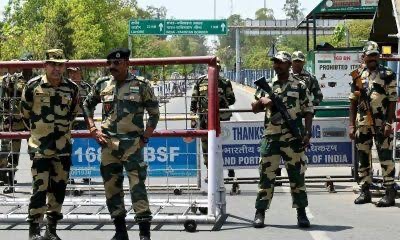
In a sudden diplomatic breakthrough, nuclear-armed rivals Pakistan and India declared an immediate ceasefire on Saturday, ending days of intense cross-border attacks that had raised fears of all-out war in the region. The agreement came after urgent mediation efforts by the United States.
The announcement was made simultaneously by both nations’ foreign ministers on social media. Pakistan’s Ishaq Dar stated the country “has always strived for peace and security in the region,” while India’s S. Jaishankar confirmed the “understanding on stoppage of firing and military action.” Their statements followed a tweet from former U.S. President Donald Trump claiming credit for brokering the deal, with current Secretary of State Marco Rubio having held emergency talks with both sides.
The recent flare-up began after a devastating April 22 militant attack in Indian-administered Kashmir killed 26 people, mostly tourists. India blamed Pakistan, launching retaliatory strikes that Pakistan denied responsibility for and countered with its own military actions. In the ensuing days, the neighbors exchanged missile fire, drone attacks and artillery shelling across their contested border, with Pakistan reporting multiple civilian casualties.
This latest confrontation continues the bitter legacy of the 1947 Partition, when British colonial rulers divided the subcontinent into Hindu-majority India and Muslim-majority Pakistan. The disputed Kashmir region has been a flashpoint through three subsequent wars and countless skirmishes between the nuclear powers.
While the ceasefire brings temporary relief, experts warn the underlying tensions remain unresolved. Neither side provided details about the terms or duration of the agreement, and verification of military claims from the recent fighting remains difficult. Pakistan continues calling for an independent investigation into the initial Kashmir attack that sparked this crisis, while India maintains its right to defend against terrorism.
The international community has welcomed the de-escalation, but many questions linger about the long-term prospects for peace between these historic rivals and what role outside powers like the U.S. will play in maintaining stability going forward.







